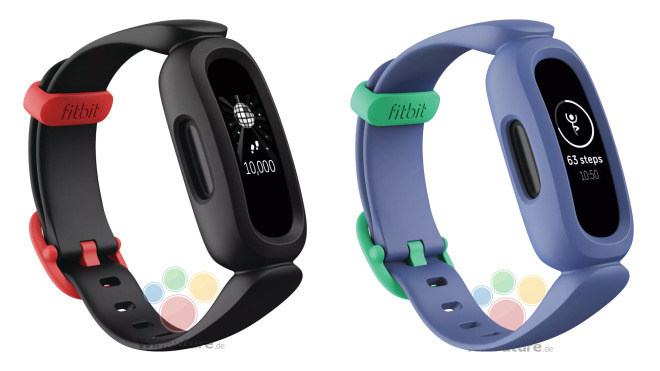Fitbit Ace 3 to reportedly feature OLED display, up to 8-day battery life
Similar to its predecessor, the Fitbit Ace 3 supports the tracking of activities like skipping, jumping, running, hiking and cycling as well as sleep tracking. It is said to offer a battery life of up to 8 days on a single charge as opposed to its predecessor - Fitbit Ace 2 - that lasts up to 5-days on a full charge.

Fitbit's upcoming kids-focused fitness tracker - Fitbit Ace 3 - is expected to be launched in mid-March. Ahead of the official unveiling, key specifications and images of the activity tracker have been leaked.
According to WinFuture, the Fitbit Ace 3 will come with a 1.47-inch greyscale OLED display with 240 x 240 pixels resolution. As seen in the leaked images, the activity tracker has a silicone band with an adjustable clasp and a physical button.
Similar to its predecessor, the Fitbit Ace 3 supports the tracking of activities like skipping, jumping, running, hiking and cycling as well as sleep tracking. It is said to offer a battery life of up to 8 days on a single charge as opposed to its predecessor - Fitbit Ace 2 - that lasts up to 5-days on a full charge.
As of now, there are no details regarding the pricing of the Fitbit Ace 3, but it might cost the same as its predecessor which retails for around USD70 (Approx. Rs 5,100).
It will be offered in black, red, blue and green color options. The tracker is said to be compatible with Android OS and Apple iOS and weighs 70 grams.
Back in January 2021, Google announced the acquisition of Fitbit and Ace 3 will likely be the first product the wearables giant will be launching under Google.
Announcing the acquisition, Google then said, "We're confident the combination of Fitbit's leading technology, product expertise and health and wellness innovation with the best of Google's AI, software and hardware will drive more competition in wearables and make the next generation of devices better and more affordable."
- READ MORE ON:
- Fitbit Ace 3
- activity tracker
- wearables










